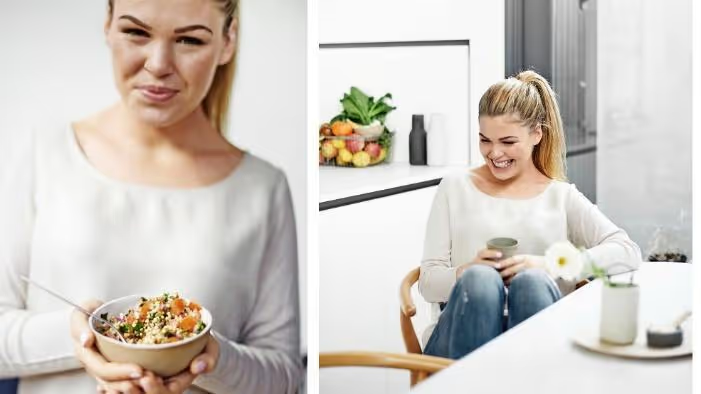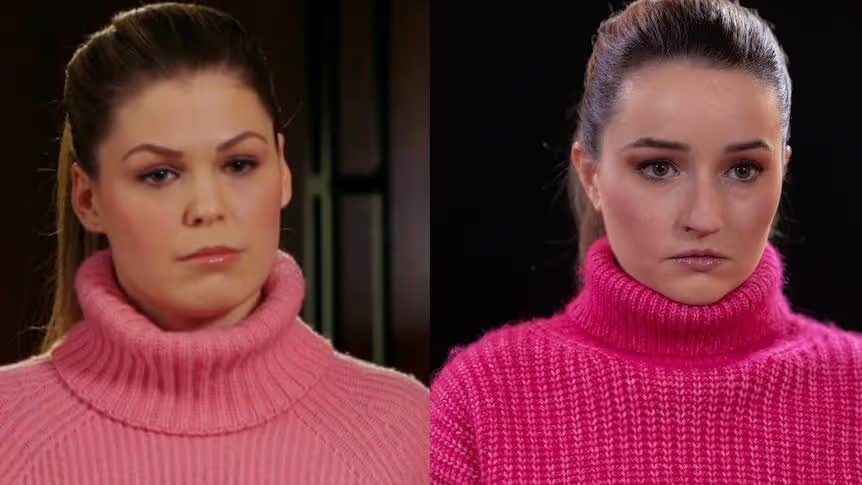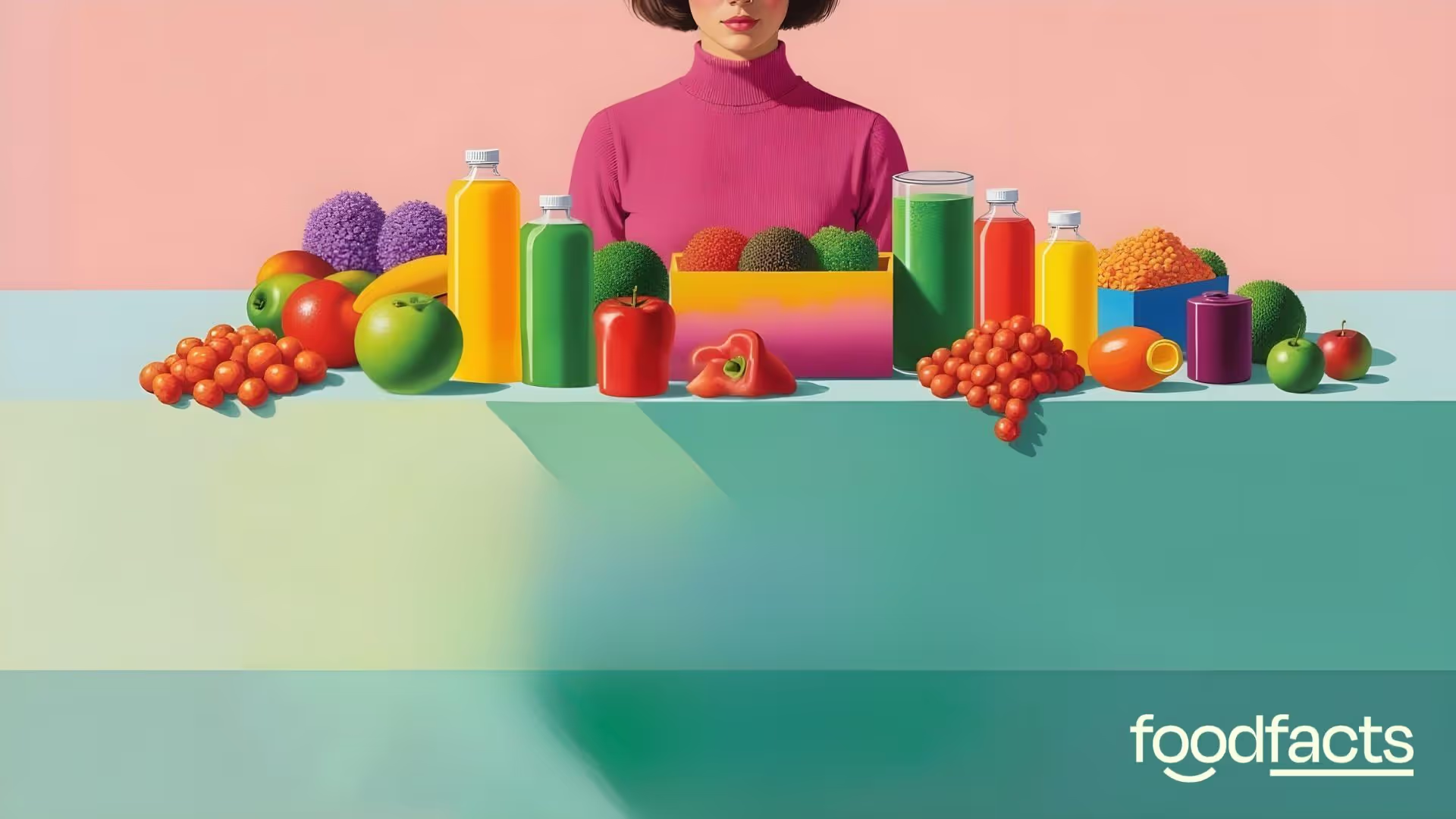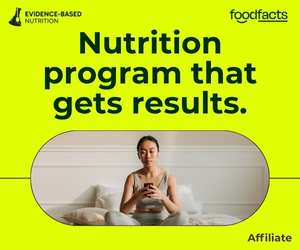
The Belle Gibson scandal: how wellness misinformation endangers public health





Coral Red: Mostly False
Orange: Misleading
Yellow: Mostly True
Green: True
Learn more about our fact-checking policies
Following the release of Apple Cider Vinegar on Netflix, Belle Gibson’s story has made headlines again, almost ten years after she disclosed having lied about her health on social media platforms.
Known as “the woman who fooled the world,” her case highlights the profound impact of health misinformation on people’s lives, and the lack of scrutiny behind wellness influencers' platforms.
For those unfamiliar or in need of a refresher, we provide an overview of Belle’s story, followed by an analysis of its implications for the growing landscape of social media nutritional content.
The Making of a Wellness Fraudster
In 2013, Annabelle "Belle" Gibson emerged on Instagram as @healing_belle, claiming she had been diagnosed with terminal brain cancer and given just months to live. Rather than pursue conventional medical treatments like chemotherapy, Gibson claimed she was healing herself through a strict diet and alternative therapies. Her narrative of beating terminal cancer through natural remedies was compelling—it offered hope to those facing devastating diagnoses and reinforced a prevalent wellness narrative about taking control of one's health.

Gibson's social media success quickly expanded into several successful business opportunities. Her app, "The Whole Pantry," garnered 200,000 downloads in a single month. A cookbook deal followed, and Apple even flew Gibson to Silicon Valley to celebrate the launch of the Apple Watch, for which her app would be a featured offering. Throughout her rise to fame, Gibson repeatedly claimed that a significant portion of her profits would be donated to charities and the family of a child with cancer.
As her profile grew, so did her health claims. In July 2014, Gibson informed her followers that her cancer had spread to her "blood, spleen, brain, uterus and liver". Her apparent survival despite this grim prognosis only enhanced her reputation as someone who had defied medical science through the power of natural healing.
The Unraveling of a Web of Lies
In March 2015, journalists Beau Donelly and Nick Toscano from the Melbourne newspaper ‘The Age’ published an investigation that would ultimately expose Gibson's elaborate deception. Their reporting revealed that none of the five charities Gibson claimed to support had any record of receiving donations from her or The Whole Pantry, despite her public fundraisers and promises.

(Belle Gibson was interviewed and confronted with the allegations. Source: Source: 60 Minutes Australia; Netflix)
Under mounting pressure, Gibson admitted in an April 2015 interview with Women's Weekly that she had never had cancer, simply stating, "None of it's true".
The Challenges of Fact-Checking Wellness Misinformation
Gibson's case represents just one high-profile example of a much larger problem: the proliferation of health misinformation that can lead people to make dangerous decisions about their medical care.
Disinformation, Misinformation: What’s the difference and why does it matter?
Misinformation can sometimes be equated with disinformation, but the latter is a lot harder to prove. To be able to say that we are dealing with a case of disinformation, we need to show that there was an intent to deceive for personal or economic gain. This is what makes cases like Belle Gibson’s story, to a certain extent, so unique: she admitted to lying to the public, and these lies had a direct impact on the financial success of her app, The Whole Pantry.
However, most of what we encounter at Foodfacts.org is classified as MIS-information. So what’s the difference?
By definition, misinformation is not deliberate. Someone sees a post they find compelling or helpful, and shares it to help others. When this post spreads inaccurate or misleading information, it’s classified as misinformation. There is no intention to harm anyone here. But the effects are very real nonetheless.
Fact-checkers can often be criticised for calling out misinformation, when people feel that the general message behind a post was either helpful, or even justified. While no one would defend Belle Gibson’s deceptive tactics, some of the advice she shared publicly could be said to be generally helpful and health-promoting; at least that is how it was perceived then. Here’s an extract from an interview she gave on Sunrise, an Australian breakfast show:
“It’s about getting back to the fundamentals of a healthy life [...] Going back to basics and eating more of those fundamental foods, getting adequate water intake, eating more fruits and vegetables. It’s really simple and people overthink it.”
Her whole brand was built on following a nutrient-dense balanced diet, made up of whole foods. And there is certainly a lot of good in that.
So where do we draw the line? How do we know who to trust and who might be another ‘health con’?
The issue lies with the broader narrative that these posts build, and that is true whether we’re dealing with misinformation or disinformation. Consider this introduction of Belle Gibson before she gave the above interview on the show Sunrise:
“After trying the traditional [cancer] treatments, she turned to Whole Foods instead to heal herself.”
This type of statement falls directly under a growing trend on social media: talking about food as medicine.
You might ask again: what’s wrong with that? Isn’t food directly impacting our health? Isn’t promoting whole food consumption a positive step towards better health?
Yes, it is, and improving our diets would go a long way to help prevent certain chronic diseases.
But there is a fundamental difference between that previous statement, and thinking of food as medicine. There are multiple factors that impact our overall health and well-being - diet being one of them. When people talk about food as medicine, they often also imply - perhaps unwillingly - that you are in control of your health: all you have to do is eat in a certain way, and you will ‘get your health back.’ While this can be empowering for some, it can also make people who do not see changes feel immense guilt. But that is only one part of the problem.
These posts are part of a broader trend that sows distrust in authorities, and that includes health authorities. You might have encountered statements along the lines of “Doctors only treat symptoms”; “Big Pharma doesn’t want you to get better anyway, they just want to sell you their treatments. Wake up!”
This creates the perfect environment for holistic healing messages to rise in popularity. Issues arise when “food as medicine” gets combined with the rejection of medical treatments, evidence-based science, or even support from health professionals.
In this post, a wellness influencer briefly portrayed in the Netflix series criticises the show’s negativity towards holistic healing practices, which she says are unfairly demonised. I would argue that the promises of holistic healing, combined with the rejection of Western medicine and of help from health professionals, are criticised.
Protecting Public Health in the Age of Misinformation
The Netflix series might be a dramatisation, but it does raise awareness of a very real issue: the impact of certain social media narratives on people’s lives.
Social media platforms amplify this problem by design. It creates echo chambers, which can trap vulnerable individuals into bubbles where feelings of distrust can grow, and false promises might be made. This environment can eventually lead people to reject evidence-based solutions.
The show sheds light on a critical issue: the lack of background checks and accountability on social media, particularly concerning health advice. As more people turn to social media influencers for guidance, it's essential for users to discern whether these individuals are qualified to provide expert advice beyond sharing personal experiences. However, deciphering a list of unfamiliar qualifications can be daunting. Unlike the rigorous processes required to get a medical licence, social media influencers often build their platforms through charisma, an authoritative voice, and relatability—factors that drive engagement but do not necessarily ensure expertise.
Social media offers us all a platform to share our voice; to reach more people, perhaps to spread awareness of important issues; but it can also inadvertently drown the voice of experts and scientists, those who build their careers in the lab for the advancement of science, not in the public sphere.
Barbara O’Neill is an Australian alternative healthcare promoter. Complaints were raised to the New South Wales Health Care Complaints Commission following claims she made which were deemed to be dangerous, mainly regarding infant nutrition and cancer treatments. Following an investigation into her conduct and practice, Barbara O’Neill was faced with a prohibition order, stopping her from providing health services:
“The Commission is satisfied that Mrs O’Neill poses a risk to the health or safety of members of the public. The Commission therefore makes the following prohibition order:
- Mrs O’Neill is permanently prohibited from providing any health services, as defined in s4 of the Health Care Complaints Act 1993 (the Act), whether in a paid or voluntary capacity.”
Yet she continues to have significant influence through her social media platform, where she has gathered over 2 million followers from all over the world.
In ways, misinformation can be a lot harder to pinpoint than disinformation. Barbara O’Neill hasn’t lied about her qualifications. She speaks openly about her expertise stemming from lived experience. She certainly hasn’t lied about a health condition that she successfully treated ‘naturally’. Amidst videos in which she encourages people to follow a healthy lifestyle that focuses on holistic practices, eating whole foods to nourish the body rather than ultra-processed foods pushed by TV ads, she also actively discourages people from seeking medical treatments: from creams that are ‘full of chemicals’ to treat skin conditions, to advising women not to get pap smears: an evidence-based practice proven to save lives.
So let me ask again: where do we draw the line?
Once disinformation has been exposed, the person who was found to be deceptive will undoubtedly lose some influence. Misinformation can be a lot more pervasive. It might not be as extreme, but its consequences are no less real, and addressing the harm it causes can be extremely challenging. The case exposed by Netflix’s Apple Cider Vinegar should highlight why it is crucial that these issues are taken seriously.
In the meantime, people continue to turn away from evidence-based treatments through exposure to messages of distrust on social media. Others might end up developing obsessive, negative attitudes towards food, having a highly detrimental impact on their health and overall well-being. Language is powerful. Those who use large platforms to share messages of promise, from ‘getting your health back’ to ‘curing disease’, should be held accountable.
Conclusion: Beyond Belle Gibson
Belle Gibson’s story is not just about one person's deception but about systemic issues in how health information is created, shared, and consumed in the digital age. The case highlights the urgent need for better protections against health misinformation. Since her scandal broke, Australia has introduced new laws targeting people who promote misinformation about cancer treatments. However, gaps in regulation remain, particularly regarding the responsibility of digital platforms in curbing the spread of false health claims.
As Meta (formerly Facebook) scales back its fact-checking programs and health misinformation continues to proliferate online, the need for collective action becomes more urgent. This includes improved regulation of health claims, greater accountability for digital platforms, better health communication from scientific authorities, and enhanced health literacy among the public.
Psychologists and other scientists are developing strategies to combat health misinformation, including approaches known as "debunking" and "prebunking". In November 2023, the American Psychological Association released a consensus statement titled "Using Psychological Science to Understand and Fight Health Misinformation" to provide evidence-based guidance on the issue.
For individual consumers, developing critical health literacy skills is essential. This includes:
- Verifying health claims with credible sources like medical professionals and peer-reviewed research
- Being wary of miracle cure claims, especially those that position themselves against conventional medicine
- Considering the qualifications of those offering health advice
- Understanding that personal testimonials, while powerful, are not scientific evidence
- Being alert to emotional manipulation in health-related content
The dramatization of Gibson's story in "Apple Cider Vinegar" arrives at a critical moment when distinguishing health fact from fiction has never been more challenging—or more important. As we navigate an increasingly complex information landscape, the cautionary tale of Belle Gibson reminds us that when it comes to health claims, skepticism is not cynicism—it's self-protection.

Citations
- https://www.elle.com/uk/life-and-culture/culture/a63752259/where-is-belle-gibson-now/
- https://www.radiotimes.com/tv/documentaries/belle-gibson-documentaries-apple-cider-vinegar/
- https://www.independent.co.uk/arts-entertainment/tv/features/apple-cider-vinegar-netflix-true-story-b2702108.html
- https://www.yahoo.com/news/wellness-influencer-exposed-faking-cancer-180052576.html
- https://www.mccabecentre.org/news-and-updates/apple-cider-vinegar-how-netflix-s-new-series-revives-the-debate-on-health-misinformation.html
- https://research.monash.edu/files/639296223/638994706-oa.pdf
- https://www.who.int/europe/news/item/01-09-2022-infodemics-and-misinformation-negatively-affect-people-s-health-behaviours--new-who-review-finds
- https://www.usatoday.com/story/entertainment/tv/2025/02/07/netflix-apple-cider-vinegar-belle-gibson-fact-check/78180560007/
- https://www.netflix.com/tudum/articles/apple-cider-vinegar-ending-explained
- https://www.radiotimes.com/tv/drama/apple-cider-vinegar-true-story-netflix/
- https://www.bbc.co.uk/news/world-australia-41423491
- https://economictimes.com/news/international/global-trends/the-belle-gibson-scandal-how-a-fake-cancer-story-turned-her-into-australias-most-hated-woman/articleshow/117977011.cms
- https://www.apa.org/monitor/2024/07/ending-health-misinformation
- https://www.thelancet.com/journals/lancet/article/PIIS0140-6736(25)00094-7/fulltext
- https://www.citystgeorges.ac.uk/news-and-events/news/2025/february/stephanie-alice-baker-on-apple-cider-vinegar



Foodfacts.org is an independent non-profit fact-checking platform dedicated to exposing misinformation in the food industry. We provide transparent, science-based insights on nutrition, health, and environmental impacts, empowering consumers to make informed choices for a healthier society and planet.
🛡️ Stand Against Nutrition Misinformation
Misinformation is a growing threat to our health and planet. At FoodFacts.org, we're dedicated to exposing the truth behind misleading food narratives. But we can't do it without your support.
Your monthly donation can:
✅ Combat viral diet myths and corporate spin
✅ Support our team of dedicated fact-checkers and educators
✅ Keep our myth-busting platforms running

Was this article helpful?
















.svg)
